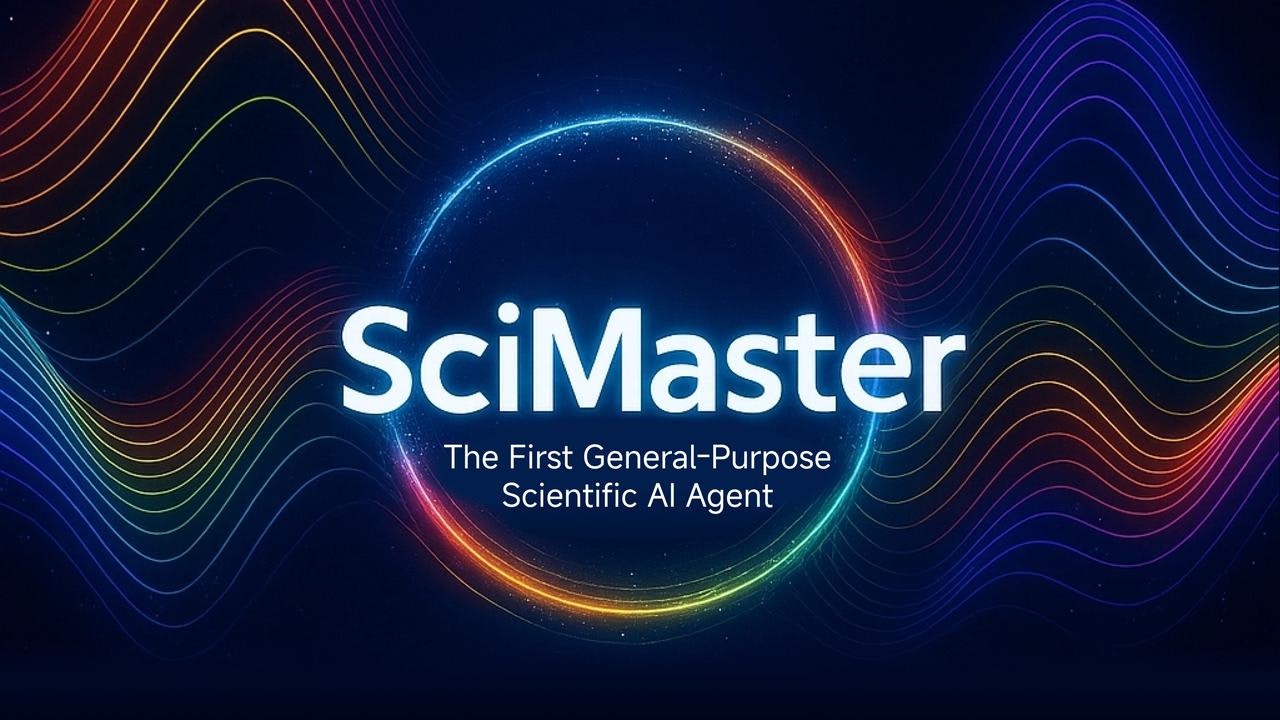Table of Contents
Overview
Enter the world of advanced scientific research with SciMaster, an innovative AI research assistant designed to enhance scientific discovery processes. Developed through collaboration between Shanghai Jiao Tong University, DP Technology, and the Shanghai Institute for Advanced Algorithms, SciMaster functions as an advanced research companion for scientists, a knowledge resource for students, an analytical partner for data researchers, and a platform supporting autonomous scientific exploration. Built on the Innovator foundation model, this tool provides sophisticated analytical capabilities for scientific research endeavors.
Key Features
SciMaster incorporates specialized functionalities tailored specifically for the scientific research community and academic workflows.
- Advanced Research Assistance: Provides expert-level support for complex scientific inquiries, helping researchers navigate sophisticated research questions and synthesize information from extensive literature databases.
- Comprehensive Scientific Knowledge Access: Delivers detailed and precise responses to scientific questions by accessing a database of over 170 million scientific documents and research papers.
- Autonomous Discovery Capabilities: Equips users with tools for independent scientific exploration, supporting hypothesis generation and research pathway identification through AI-powered analysis.
- Chain-of-Thought Editing: Features unique interactive capabilities allowing users to pause, modify, and redirect AI reasoning processes in real-time, ensuring more accurate and user-controlled results.
- Laboratory Integration: Connects with experimental equipment and software through Uni-Lab’s MCP services, enabling integration between computational and experimental research workflows.
How It Works
SciMaster operates through a sophisticated workflow designed to support comprehensive scientific research processes. Users access the platform through a dedicated web interface requiring invitation code registration for the current beta version. Once authenticated, researchers can input scientific queries or research tasks using natural language commands. The AI system processes requests using the Innovator foundation model, analyzing queries against its extensive database of scientific literature and research data. Through multi-modal search capabilities including WebSearch, WebParse, and PaperSearch functions, the system retrieves relevant information from diverse sources. Finally, SciMaster generates detailed research reports with citations, data analysis, and actionable insights, while allowing users to modify the reasoning process through chain-of-thought editing features.
How It Works
SciMaster addresses various scenarios where AI-powered scientific research support provides significant value for researchers, students, and analysts across multiple disciplines.
- Literature Review and Analysis: Accelerate comprehensive literature surveys by automatically identifying, analyzing, and synthesizing relevant research papers across multiple scientific disciplines and databases.
- Educational Support and Knowledge Transfer: Provide accessible explanations of complex scientific concepts for students and researchers entering new fields, facilitating knowledge acquisition and understanding.
- Research Planning and Hypothesis Development: Support data-driven research planning by analyzing existing literature, identifying research gaps, and suggesting potential research directions based on current scientific knowledge.
- Experimental Design Integration: Connect computational research with laboratory workflows through equipment integration, enabling coordinated wet-lab and dry-lab research approaches.
Pros \& Cons
Advantages
- Specialized Scientific Focus: Provides domain-specific expertise tailored for scientific research, offering more relevant support than general-purpose AI tools for academic and research applications.
- Comprehensive Research Workflow: Streamlines multiple aspects of research including literature review, data analysis, and report generation within a unified platform environment.
- Advanced Integration Capabilities: Offers unique connections to laboratory equipment and open-source scientific computing communities, supporting end-to-end research processes.
Disadvantages
- Limited Access Availability: Currently requires invitation codes for beta access, potentially limiting immediate availability for interested researchers and academic institutions.
- Verification Requirements: As with all AI-generated research outputs, human oversight remains essential to validate accuracy, methodology, and contextual appropriateness of scientific insights.
- Specialized Domain Focus: Optimized specifically for scientific research applications, potentially limiting utility for broader academic or general research needs outside STEM disciplines.
How Does It Compare?
In the expanding landscape of AI-powered research tools, SciMaster positions itself among several established platforms serving different aspects of scientific research workflows. Elicit specializes in systematic literature reviews with automated workflows, accessing 125 million papers and offering subscription plans from \$12-240 monthly, focusing specifically on evidence synthesis and meta-analysis capabilities for researchers requiring structured review processes.
Semantic Scholar provides free access to over 200 million papers with AI-powered semantic search and citation analysis, serving as a comprehensive academic search engine with advanced paper discovery and trend analysis features. Consensus focuses on evidence-based research synthesis, answering specific research questions by analyzing scientific consensus across multiple studies, particularly valuable for fields requiring evidence-based decision making.
SciMaster differentiates itself through its combination of autonomous discovery capabilities, laboratory equipment integration via Uni-Lab MCP services, and chain-of-thought editing features that allow real-time interaction with AI reasoning processes. While established platforms excel in specific research tasks like literature search or systematic reviews, SciMaster’s integrated approach to connecting computational research with experimental workflows and its emphasis on autonomous scientific discovery provide unique value for researchers seeking comprehensive research support. The optimal choice depends on specific research requirements, institutional access needs, and the importance of experimental integration versus specialized literature analysis capabilities.
Final Thoughts
SciMaster represents a notable advancement in AI-powered scientific research tools, addressing the evolving needs of researchers seeking comprehensive support for complex scientific inquiries. Its emphasis on autonomous discovery, experimental integration, and interactive reasoning processes provides distinctive value for researchers working at the intersection of computational and experimental science. While considerations include current beta access limitations and the continued need for human oversight in scientific validation, the platform’s integration of advanced AI capabilities with practical research workflows offers promising potential for enhancing scientific productivity. SciMaster’s continued development will likely benefit from expanding access, strengthening its experimental ecosystem integrations, and maintaining its focus on supporting authentic scientific discovery processes as the field of AI-assisted research continues to mature.
